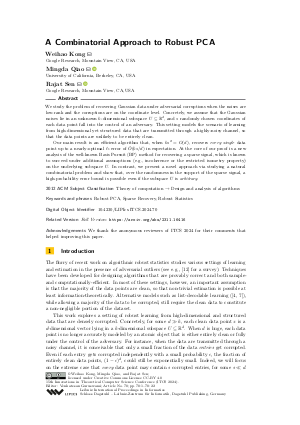LIPIcs.ITCS.2024.70.pdf
- Filesize: 0.78 MB
- 22 pages

 Creative Commons Attribution 4.0 International license
Creative Commons Attribution 4.0 International license











































Feedback for Dagstuhl Publishing